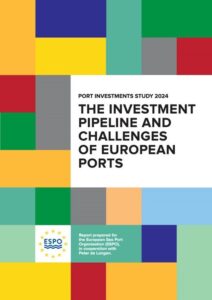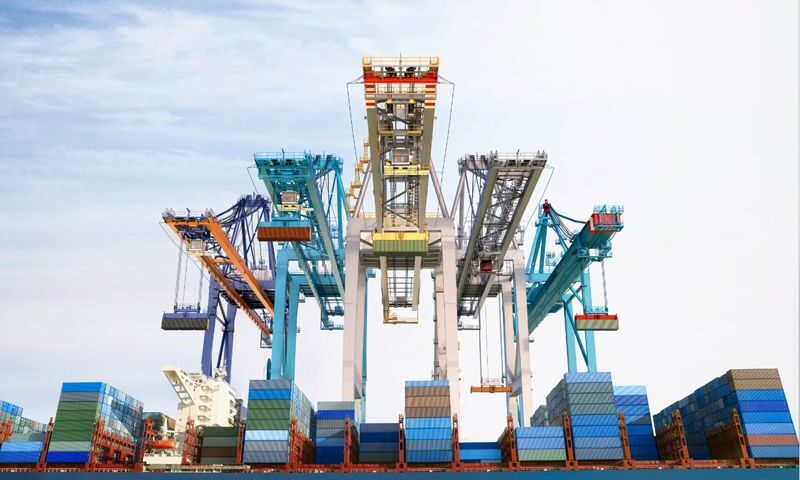The European Sea Ports Organisation (ESPO) has just unveiled the results of the much-anticipated ESPO Port Investment Study 2024 at its annual Conference in Paris. This groundbreaking study offers a deep dive into the investment landscape and challenges faced by European ports, shedding light on their evolving roles and pressing needs.
Prepared by PortEconomics member Dr. Peter de Langen in collaboration with ESPO, the study presents a comprehensive analysis based on the input of 84 port managing bodies across Europe. It reveals a staggering €80 billion investment requirement over the next decade, emphasizing the critical role of ports in Europe’s economic and environmental landscape.
One of the study’s key revelations is the shifting focus towards sustainability and energy transition, emerging as the second most crucial investment category for port authorities. European ports are not just gateways anymore; they’re evolving into hubs of innovation, sustainability, and resilience.

ESPO Secretary General, Isabelle Ryckbost, emphasizes, “Ports are embracing new roles and responsibilities, often investing in projects with high societal value but uncertain returns. They stand ready to contribute to Europe’s ambitions but require adequate support.”
In light of these findings, ESPO calls upon policymakers to recognize the strategic importance of European ports and provide a robust support framework to address their investment challenges. The study underscores the need for dedicated funding instruments within the EU, such as the Connecting Europe Facility, to ensure the realization of port ambitions.
The ESPO Port Investment Study 2024 marks a pivotal moment in understanding the evolving dynamics of European ports and the imperative of supporting their growth and sustainability in the years to come. Stay tuned for further updates as stakeholders work towards shaping the future of European maritime infrastructure!












